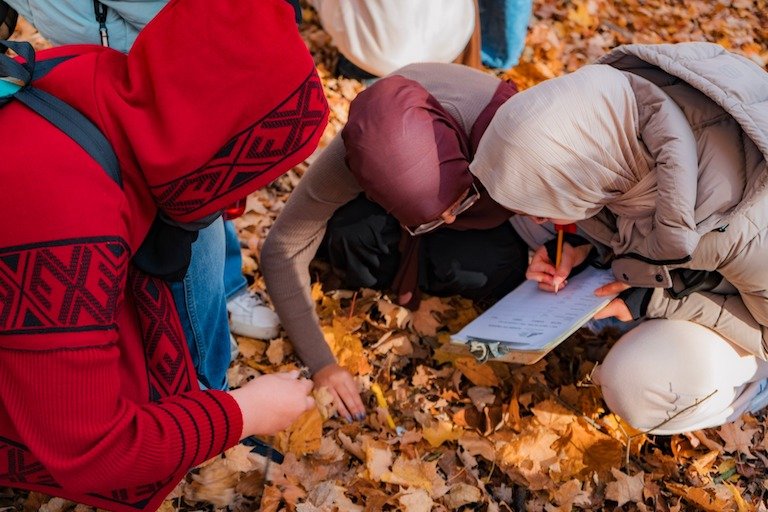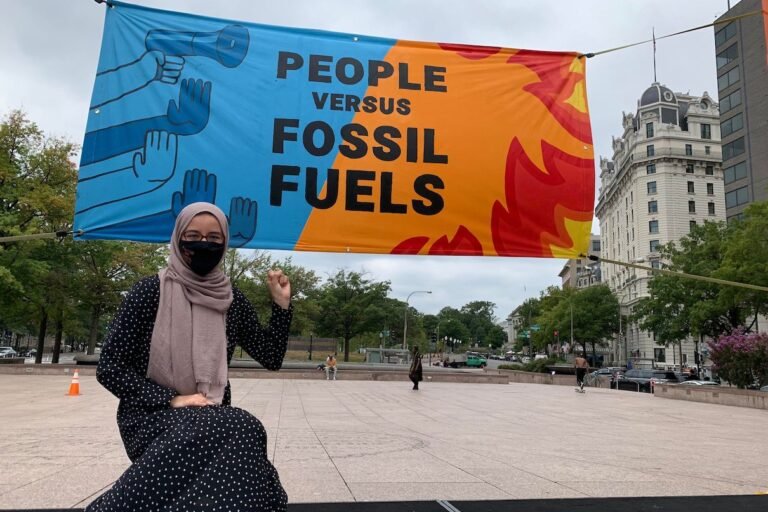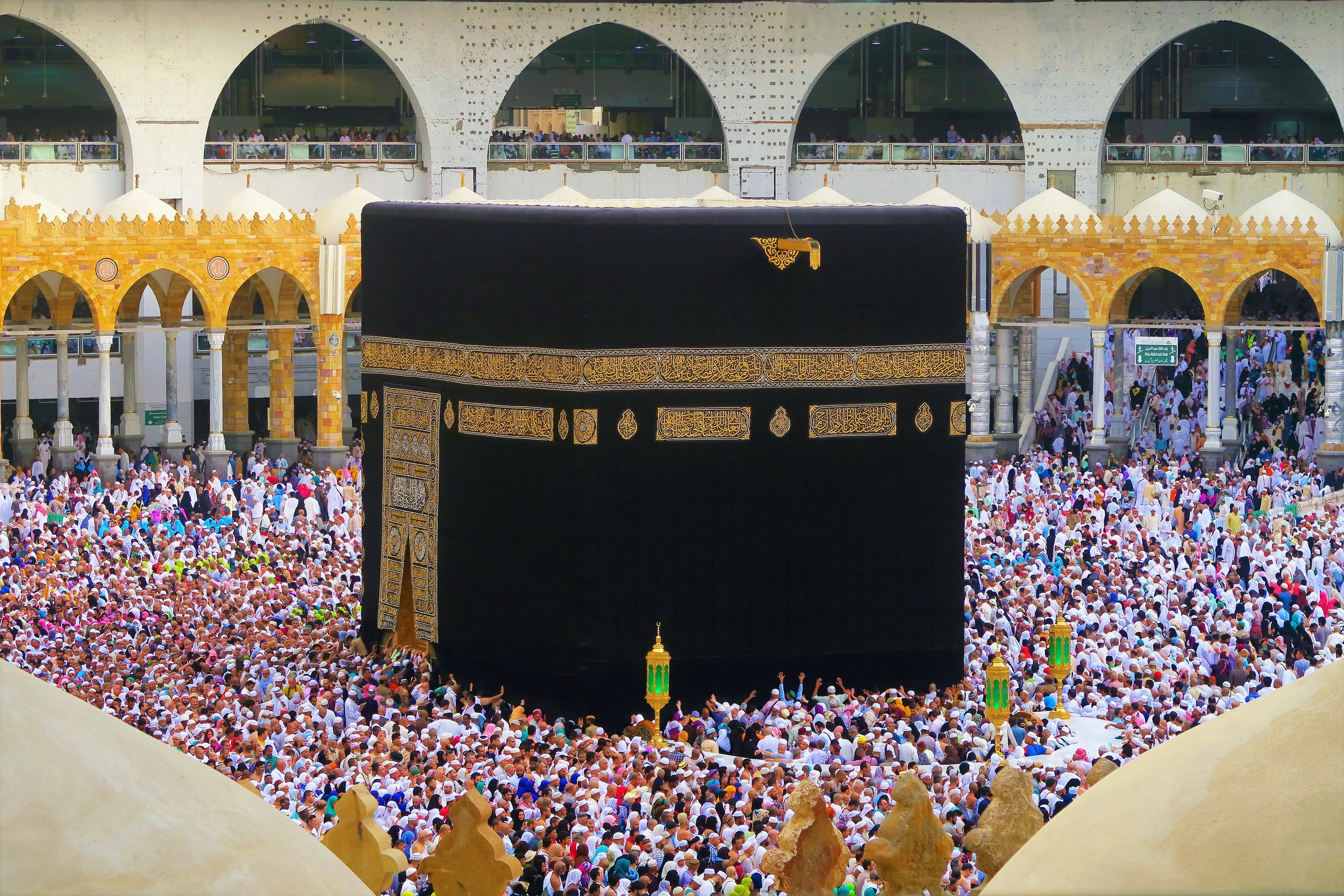By Kamran Shezad
In a famous speech delivered in 2010, His Royal Highness, Prince Charles spoke extensively on “Islam and the Environment”. During this excellent overview, he mentioned two important, personal findings. Firstly, he concluded that people were more likely to care for the environment if they were told that this is a religious responsibility. Secondly, he asserted that no religion stresses the importance of green matters more so than Islam.
It is hard to disagree with him on this, the teachings of Islam are inherently environmental. Biodiversity is celebrated in the Holy Qur’an. Prophet Muhammad (peace be upon him) championed environmental rights and concerns fourteen centuries ago.
Life on earth is made up of a complex set of interrelated ‘ecosystems’ which should be maintained in a natural balance. For example, if there were no pollinating insects on earth like bees and butterflies, there would not be any fruit. Without plants that provide nectar and pollen, there would be no food to sustain the bees. Bees and plants are dependent upon each other. Many ecosystems rely on a wide variety of plants and animals interacting with one another like bees and plants; this is what we call biodiversity. The Quran mentions this balance beautifully:
ِمي َزا َنِْق ْس ِط َوَل تُ ْخ ِس ُروا الْالَِو ْز َن بِْقي ُموا الَِن - َوأِمي َزاْْطَغْوا فِي الََل َتِمي َزا َن - أَْوال َس َما َء َرَفَعَها َوَو َض َع ال
“Allah raised the heaven and established the balance, so that you would not transgress the balance. Give just weight – do not skimp in the balance” (Qur’an 55:7-9).
Allah requests humanity to respect the balance and acknowledge its importance for our very own existence. He also asks us to maintain this balance - what we take from this earth with one hand, we must return with the other.
Elsewhere, the Quran is rich of references to the beautiful world He has created for us. It teaches many lessons on the protection of biodiversity; from the story of Prophet Noah (peace be upon him) who was asked by God to protect all the animals before the coming flood (11: 40), to Prophet Solomon (peace be upon him) who took into consideration the plight of ants whilst marching his army (27: 17-18).
The primary purpose of the Quran is to provide ‘guidance for the pious’ (2: 2). But an observer will undoubtedly notice it is a book on nature too. It pays constant tribute to life on earth, with many chapters named after animals and plants, such as al-Baqarah (Cow), al-An`am (Cattle), al-Nahl (Bees), al-Naml (Ants), al-Ankabut (Spider), al-Adiyat (Horses), al-Fil (Elephant), al-Insan (Man), al-Tin (Fig), and al-Nas (Mankind). It asks us to reflect on how the camel was created and how the sky was raised (88: 17-18). Plants such as onions, figs, mustard, pomegranate, trees, lentils, grapes, fruits, garlics, cucumbers and dates all get a mention in the Quran - as a sign of Allah’s perfection and a reminder of the variety and variability of life on earth.
Our lives depend on healthy waters, the oceans and rivers are essential for the survival of life; they are the lifeline of this planet and civilisation. Oceans cover over two thirds of our planet and hold 97% of the planet's water. They produce more than half of the oxygen in the atmosphere and absorb the most carbon from it. Rivers are equally as important, they also provide us with food as well as energy, recreation,
transportation routes, and of course, water for irrigation and for drinking purposes. Most settlements and major cities around the world are built along major rivers. Muslims are aware of all of this thanks to the Qur’an, which in many places refers to the role of the oceans:
َك َمَوا ِخ َر ِفي ِه َولَِتْبَت ُغواْلفَُْب ُسوَن َها َوَت َرى الَْتلَية ُْه ِحلُجوا ِمنِْا َوَت ْسَت ْخر ي َِطرْح ماُه لَُوا ِمنُْكلَْب ْح َر لَِتأِْذي َس َخ َر الََو ُهَو ال َ ُكْم َت ْش ُك ُرو َنَعلِمن َف ْضلِ ِه َولَ
“And Allah committed the sea to serve you; you eat from it tender meat and extract jewellery which you wear. And you see the ships roaming it for your commercial benefits, as you seek His bounties, that you may be appreciative” (Qur’an 16:14).
Prophet Muhammad (peace be upon him) was a huge advocate of protecting nature and biodiversity. At a time when there appeared to be no environmental rights or law, he declared a thirty-kilometre area around the city of al-Madina to be a protected sanctuary, and prohibited the cutting down of trees within its borders, as well as giving various protection to other aspects of nature (Hima/Harim). This example is now being used by environmentalist around the world to protect the region’s threatened woodlands, grasslands, wetlands and rangelands.
In his sayings and actions, Prophet Muhammad (peace be upon him) was green. He equated environmental acts as a form of worship (ibada):
“If a Muslim plants a tree or sows a seed, and then a bird, human or animal eats from it, then it is regarded a charitable gift (a means of reward, sadaqa) for him” (Sahih al-Bukhari).
"Verily, there is heavenly reward for every act of kindness done to a living animal.” (Sahih al-Bukhari).
For his beloved followers, Prophet Muhammad (peace be upon him) is a paragon of mercy. This mercy was not limited to humans, it certainly extended to the plant and animal kingdom. Reports mention that whenever he (peace be upon him) and his devotees would dismount at a station for a rest (during their travels), they would remove all baggage and seating from their camel before performing prayers, eating and drinking. He warned Muslims:
"Fear God in your treatment of animals" (Abu Dawud).
"If someone kills a sparrow for sport, the sparrow will cry out on the Day of Judgement, "O Lord! That person killed me in vain! He did not kill me for any useful purpose." (Sunan al-Nasa’i)
I also want highlight a section from the Islamic Declaration on Global Climate Change drafted by Dr Fazlun Khalid of the Islamic Foundation for Environmental and Ecological Sciences (IFEES/EcoIslam):
“We recognize that we are but a minuscule part of the divine order, yet within that order we are exceptionally powerful beings, and have the responsibility to establish good and avert evil in every way we can. We also recognize that –
∙ We are but one of the multitude of living beings with whom we share the earth; ∙ We have no right to abuse the creation or impair it;
∙ Intelligence and conscience should lead us, as our faith commands, to treat all things with care and awe (taqwā) of their Creator, compassion (rahmah) and utmost good (ihsān)
One of my favourite ayahs in the Quran is from Surah Al An’am (the Cattle):
ْمِلَ ى َرِّبهَِم إُِكَتا ِب ِمن َش ْي ء َ ثُْ ُكم َ َما َف َر ْطَنا ِفي الالَْمثََم م أَُل أَِجَنا َحْي ِه إِ ر َي ِطي ُر بْر ِض َوَل َطاِئْْلََو َما ِمن َداَب ة فِي ا ُي ْح َش ُرو َن
“And there is no creature on [or within] the earth or bird that flies with its wings except [that they are] communities like you. We have not neglected in the Register a thing. Then unto their Lord they will be gathered.” (Qur’an 6:38)
Allah is referring to biodiversity as ‘communities’. What is a community, the definition of a community in the dictionary states:
∙ a group living in the same place or having a particular characteristic in common ∙ a group living together and practicing common ownership
Reflect for a second on what Allah swt is saying to us here, biodiversity is not for us to use and abuse, it’s not for us to have dominion over, it’s not for us to control or consume but for us to treat as a community, Every single variety of plant and animal life on this planet has a role to play just as different people have roles to play in communities. We are interconnected and there is no getting away from that.
To conclude, Allah has created this magnificent world for us. Whilst we must enjoy the blessings that this earth provides us, we must also show responsibility in our actions. This responsibility is manifested through consumption - that we only use what is necessary. It is also reflected in maintaining the balance - that we constantly replenish what we have taken.
You can read more about different faith perspectives on biodiversity by visiting the UN Environment Programme webpage set up by the Faith for Earth initiative.















